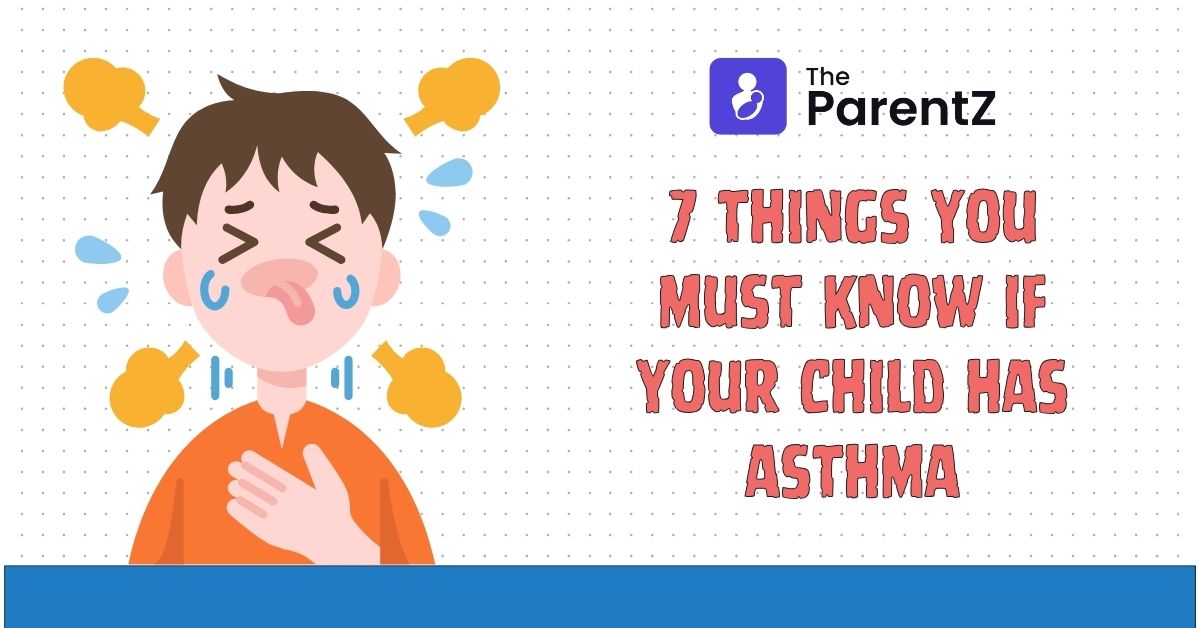Asthma is a chronic condition which significantly disrupts day to day life. It may feel overwhelming to deal with asthma but there are a couple of things you should absolutely know about your child’s asthma. These 7 things listed below are a concise checklist you should have to be well equipped to deal with asthma.
Know the complete diagnosis
Asthma is a chronic condition of the respiratory system which is usually allergic. At times though, asthma may be associated with other conditions as well and may be a part of a larger syndrome or disease. It is essential to know if your child is suffering solely from allergic asthma or if it is synchronous with other conditions as well.
Know your child’s triggers
Your child may have both allergic and non allergic triggers and it is essential that you are aware of them. Your healthcare provider may conduct sensitivity testing on your child to identify specific allergens responsible for your child’s asthma and you should be aware of that. If possible, advocate for your child to receive allergen sensitivity testing.
Allergen sensitivity testing includes introduction of small amounts of allergen in the system either via inhalation or via injection under the skin followed by monitoring to observe the reaction to the allergen. This can help isolate the specific allergen responsible for an individual’s allergic asthma and also isolate the triggers which worsen the condition.
Know how to avoid the triggers for your child
Triggers aggravate the symptoms of asthma or may even trigger an acute attack. You should be well aware of the precautions which one needs to take to avoid these triggers for your child and the changes which need to be made to the immediate environment. You should also know which environment is safe and which is risky for your child considering his/her condition. Some common precautions which should be followed are
- Avoid second hand smoke
- Avoid going in areas with air pollution
- Avoid exposure to triggers
- Take the proper medication as prescribed
Know your child’s medicines
Your healthcare provider will provide you with a couple of medicines which will help control your child’s asthma. These medicines may include bronchodilators and anti-inflammatory drugs. You should be aware of the dosage and the frequency of your child’s medication. This is also important because in case your child needs other medicines, they will need to be adjusted accordingly.
Medication can be either inhalational or oral agents. They are broadly divided into two categories- those which are responsible for long term control and those which are used for acute attacks.
Medicines which are used for long term control of asthma include-
- Inhalational steroids
- Inhalational steroids with long acting bronchodilators
- Immunomodulator
- Biological agents
- Specific anti inflammatory agents
Medicines which are used in acute attacks for short term control include-
- Short acting bronchodilators
- Oral or injectable steroids
Have an asthma action plan
You should create an asthma action plan along with your healthcare provider. Such a plan would be a kind of a roadmap to efficient control of asthma and the prevention of future attacks. It might commonly include allergen sensitivity testing, a trial of desensitisation, effective tips for preventing and control of disease along with medicines required.
Recognise the signs of an emergency
You should be able to recognise the signs of an acute asthmatic attack in your child which may pose an emergency and require immediate attention from a healthcare professional. Signs which indicate that you should immediately take your child to a hospital are that your child suddenly has trouble breathing, walking, talking and speaking.
Know the medication for an acute attack
Most medicines given to children suffering from asthma are medicines for long acting anti-inflammatory drugs for effective control of symptoms in the long run. Short acting medicine such as a bronchodilator can be prescribed to be used in a sudden acute attack of asthma. You should be aware of the emergency medication, when and how to administer it. You should also always keep it in person as your child might not be responsible enough to do so.





Be the first one to comment on this story.